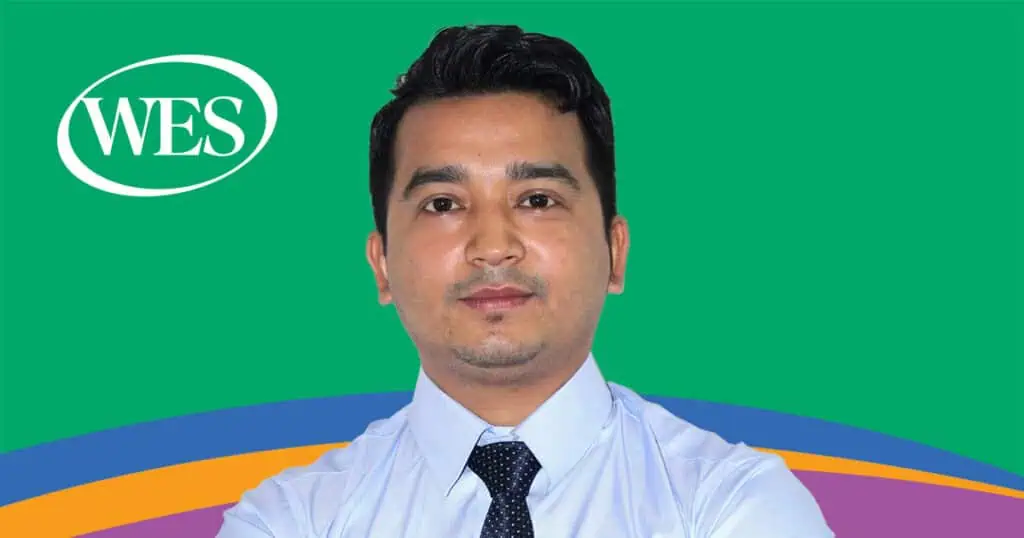Obtaining Employment in a Regulated Profession in Ontario
If you are an internationally trained professional interested in working in Ontario in a regulated profession—keep reading. Key takeaways from our recent live webinar, “Licensed Professions in Ontario: Pathways to Licensure and Employment,” are summarized below.
Our panelist, Client and Business Services Advisor Anna Eisner of Global Experience Ontario, touched on several key points, a selection of which we have included in this blog post:
- Regulated professions and trades
- Professional licensing and certification
- Common elements in the licensure process
- Practicing without a license
- Alternative careers
- Interprovincial mobility agreements
Regulated Professions and Trades
A regulated career requires its practitioners to obtain certification and licensure before they can become eligible for employment. These careers require an undergraduate degree, a specialized degree or master’s, and in some cases a doctoral or other professional degree. You must register with your field’s professional association. (This blog post describes the process for dentists.) The Ontario government provides a range of programs and services that offer step-by-step instructions on how newcomers can demonstrate their competence when looking to obtain a job within their regulated field or trade.
Examples of professionals in regulated careers include:
- Accountants
- Doctors
- Early childhood educators
- Engineers
- Lawyers
- Nurses
- Social workers
Some questions that come up frequently include a need for guidance through the licensing process, alternative career options, and support programs and services. Licensed careers require specialized training and tend to be in high demand. How can one go about getting into one of these careers in Ontario? What restrictions will one encounter?
Professional Licensing and Certification
Anna Eisner stated during the webinar that often the biggest hurdle is having to take an exam. In some cases an interview will follow. Depending on the results of the exam, interview, or both, you might be asked to further educate yourself in order to qualify for an Ontario license. A few other universal elements come into play when you are seeking a license:
- Immigration status
- Work experience
- Language proficiency
- Academic credentials
Each regulatory body has its own requirements when it comes to language proficiency and academic credentials. Very specific rules determine the types of language tests that are acceptable and the minimum passing scores of each test. For these details, check with your respective regulatory board.
Practicing Without a License
Even among professions that require a license, some allow their practitioners to practice without one. To work as a licensed professional you usually have to work in a regulated profession, use a protected title, or both. Sometimes you can work in a regulated profession without a license if you meet certain requirements—accounting is an example. While it is best to have a license from CPA Ontario, it is possible to work as an accountant without one, depending on the requirements of the firm you work for.
Here are other careers that can be practiced without an official license:
- Engineer
- Social worker
- Technician
- Technologist
Alternative Careers
Because of the high barrier to entry, some professionals choose to pursue alternative or related careers. It can take months, even years, to obtain a license in your profession. Therefore, it is smart to consider an alternative career in the meantime. Alternative careers relate to your existing skills and experience but do not usually require a professional license.
Although a smart option, seeking an alternative career can be discouraging to many professionals who cannot see how their skills are transferable. The webinar includes a handy chart of alternative career options that we encourage you to check out.
Interprovincial Mobility Agreements
Canada offers many useful labour mobility resources. Labour mobility allows professionals trained overseas to access work in different provinces through trade acts and credential recognition. You can find some of these labour mobility resources listed below:
- Canadian Free Trade Agreement (CFTA): This agreement covers 80 major professions in Canada, as well as eligibility for an equivalent license or certificate in other provinces and territories.
- Red Seal Program: This program covers 56 trades to practice anywhere in Canada without having to write further examinations.
- Mutual Recognition Agreements (MRA): These agreements cover credentials between jurisdictions and organizations, allowing some professionals to fast-track getting their professional license in Ontario.
Other support programs designed to help internationally trained professionals excel in Ontario include free language training. Some programs are specific to certain occupations, such as information technology, business, health sciences, and engineering technology.
Employment Ontario is another resource dedicated to helping you secure a job. It provides strategies for making your résumé stand out and for excelling in an interview. Joining your occupation’s professional association, attending networking events, and volunteering are just a few strategies—here are others.
The webinar discusses many other topics, including financial assistance to support further education and training.
Sign up here to watch the full on-demand webinar, and gain access to the most current information on the licensing process in Ontario.




